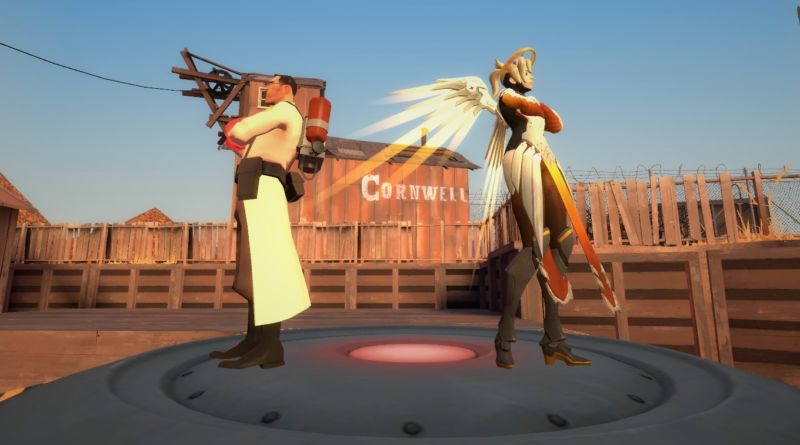Parodies VS Tropes – The Strange Differences in Team Fortress 2 and Overwatch Characters
Call me biased, but I’ve always believed that the characters in Team Fortress 2 are better than the characters in Overwatch. I’m not talking about skills or abilities or guns or playstyles or anything like that. A lot of those things are far more subjective and depend highly on the game you want to play. But when it comes to the characters and personalities of these games, there is a vast gap between what makes the TF2 classes who they are and what Overwatch’s heroes have become.
To do this though, we have to understand the difference between a parody and a trope. A parody is generally implied to be a comedic imitation of something, while a trope is a commonly used theme or device, but not a cliche. A cliche is different from a trope, as a trope is a tool, but some tropes can become cliches.
The characters in Team Fortress 2 do use some tropes (and spawned some tropes as well) but the characters themselves lean towards being parodies and amusing stereotypes of things we already have. Overwatch characters are intended to be their own individuals, but use tropes to give each character specific, relatable plot points and personality. That’s not to say that TF2 is completely trope-free (the opposite, actually), but there’s something about the building of Overwatch’s characters that makes them seem off to me.
I think the issue is that every Overwatch character somewhat feels like they have some boxes they need to tick off. Sad backstory, troubled past, things bothering them, old enemies and what they are doing now. It’s formulaic but it works. You can resonate with every character because they were (mostly) good guys once and pick the character you like best.
With the Team Fortress mercenaries though, they are very obviously designed to be parodies and stereotypes, with a vast amount of both idiocy and lunacy between them. But despite being parodies, each mercenary can still stand up on their own as a unique character. For example, Sniper isn’t a stereotypical cold-hearted sniper, he has his own set of rules and claims himself to be a professional, albeit one who pisses in jars on the regular. Sure, he’s a parody of snipers and Australians but he also has his own lore. They are all still massive parodies and stereotypes, but there is more to it than that.
Another, smaller issue is that Overwatch characters feel a bit more… corporate. They were picked and designed in a way to appeal to as many people as possible, while the Team Fortress mercenaries were designed to, well, be silly and shoot each other. This means that the sharp edges any Overwatch good guys might have had are sanded away to appeal to vast audiences and remain somewhat friendly, while in-game Team Fortress characters become sillier and sillier as the game goes on.
Although that being said, you wouldn’t know any of these things just looking at the characters in their respective games. Any and all growth any Overwatch or TF2 character has always happens outside of the games themselves, in videos and in comics. If you’re playing these games, all you see is that Mercy is a kind-hearted healer and Medic is a mad doctor and that’s kinda it. People are often too busy shooting each other to notice any in-game character development.
But still, you do end up with this strange situation where Overwatch characters are made to be as relatable as possible, leaning on all the standard hero and villain tropes, and on the flip side, the TF2 mercs are crazy lunatics with a far deeper lore than you would expect.
And that is where the main differences lie. The heroes of Overwatch are designed to be serious with some fun and laughs in the gaps, while the mercenaries of the Team Fortress universe are the opposite, a barrel of laughs with the occasional serious part thrown in.
